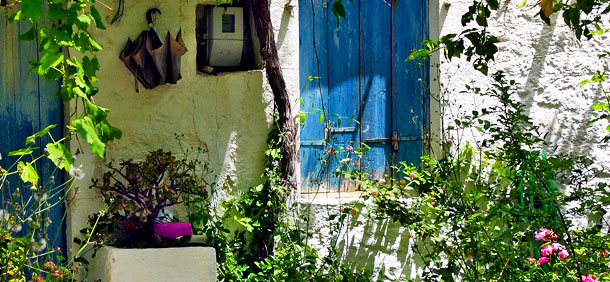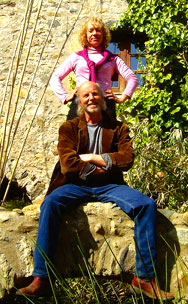- Villa search

- Canaries
- Caribbean
- Croatia, Bulgaria and Hungary
- Cyprus
- Florida
- France and Corsica
- Greece
- Italy
- Lakes and Mountains
- Madeira
- Malta and Gozo
- Portugal
- South Africa
- Spain - Balearics

Information
Related articles
Take the slow road to happiness
Do you dream of living a life with far fewer pressures and much more sun? A move to the Med can be successful, but before you go, read Au Revoir Angleterre, a guide to the highs and lows of living abroad by Paul Jenner and Christine Smith. In this extract, they issue a stress warning
The dream

Expats Paul Jenner and Christine Smith live in southern Spain, with a water mill, an olive grove, ponies and a sailing boat
You’re driving through the village when you spot someone you know coming the opposite way. You wind down your window, wave and stop. Soon you’re deep in conversation about the price of apples, two cars side by side, completely blocking the road. After a few minutes another car appears. It’s Paco. You signal that you’ll pull out of the way. But he’s already getting out and strolling up to join you. “What do you think of the wine this year?” Five minutes later there are half a dozen cars pulled up and you’re all enjoying a joke together. Nobody is in too much of a hurry to ignore the truly important things in life.
The reality
Yes, the reality can be like that. Many times we’ve stopped in the village to talk to someone and held the traffic up for a minute or so. Nobody minds. It’s normal. Equally we’ve got used to waiting for other people to have a chat. On one occasion – in France – a farmer was delivering hay for our ponies and blocked the road for 20 minutes. Nobody complained.
But it’s not the sort of thing you’d do in Rome or Barcelona. It has much more to do with country life, of course, than with life abroad. It also has to do with what we call the ‘inverse earnings rule’. Wealthy people on large salaries (who could therefore easily afford to make time for life’s little pleasantries) are invariably brusque. While poor people (who theoretically should be desperate not to have their earnings reduced) are those most inclined to stop to pass the time of day. These things apply everywhere.
So is there really a continental component? Is there really any evidence that life is less stressful in some other European countries? Well, actually, yes, there is.
‘Stress seems to be less of a problem everywhere in Europe than it is in the UK.’
The European Union periodically carries out labour force surveys which suggest that stress, depression and anxiety associated with work are at crisis level in the UK when compared with the European average. In the most recent survey, it accounted for 30.5 percent of all work-related health problems for men and a staggering 36.5 percent for women. If you want to avoid stress at work, Spain seems to be your best bet. There, only 7.3 percent of work-related health problems are caused by stress for men and 8.7 percent for women. In southern Europe, Greece would be your next choice, followed by Italy and then by Portugal. But this is not a case of a north-south divide. Stress seems to be less of a problem everywhere in Europe than it is in the UK.
Hours worked certainly have something to do with it. The British put in almost 45 hours a week (according to Eurostat, the EU’s statistics service) and four million people slave for more than 50 hours (50 per cent more people than in 1984). But if working hours alone are the problem, there’s no point in going to Greece (44.5 hours), Portugal (43.1) or Spain (42.3), the next three worst places. Better to choose France (35) or Denmark (40). Best bet with sunshine is Italy at 40.6 hours. But, really, it isn’t so much the number of hours as the pressure. A recent TUC survey found that 62 per cent of respondents said overwork was causing stress, while in the finance and insurance sector this was as high as 91 per cent.
 home | destinations and editorial | villa search | property for sale | car hire | flights | services
home | destinations and editorial | villa search | property for sale | car hire | flights | services
villaseek blog | contact villaseek | links and resources | advertise your villa© Dune Root Ltd and Villaseek.com 2012 - Caribbean
- Canaries